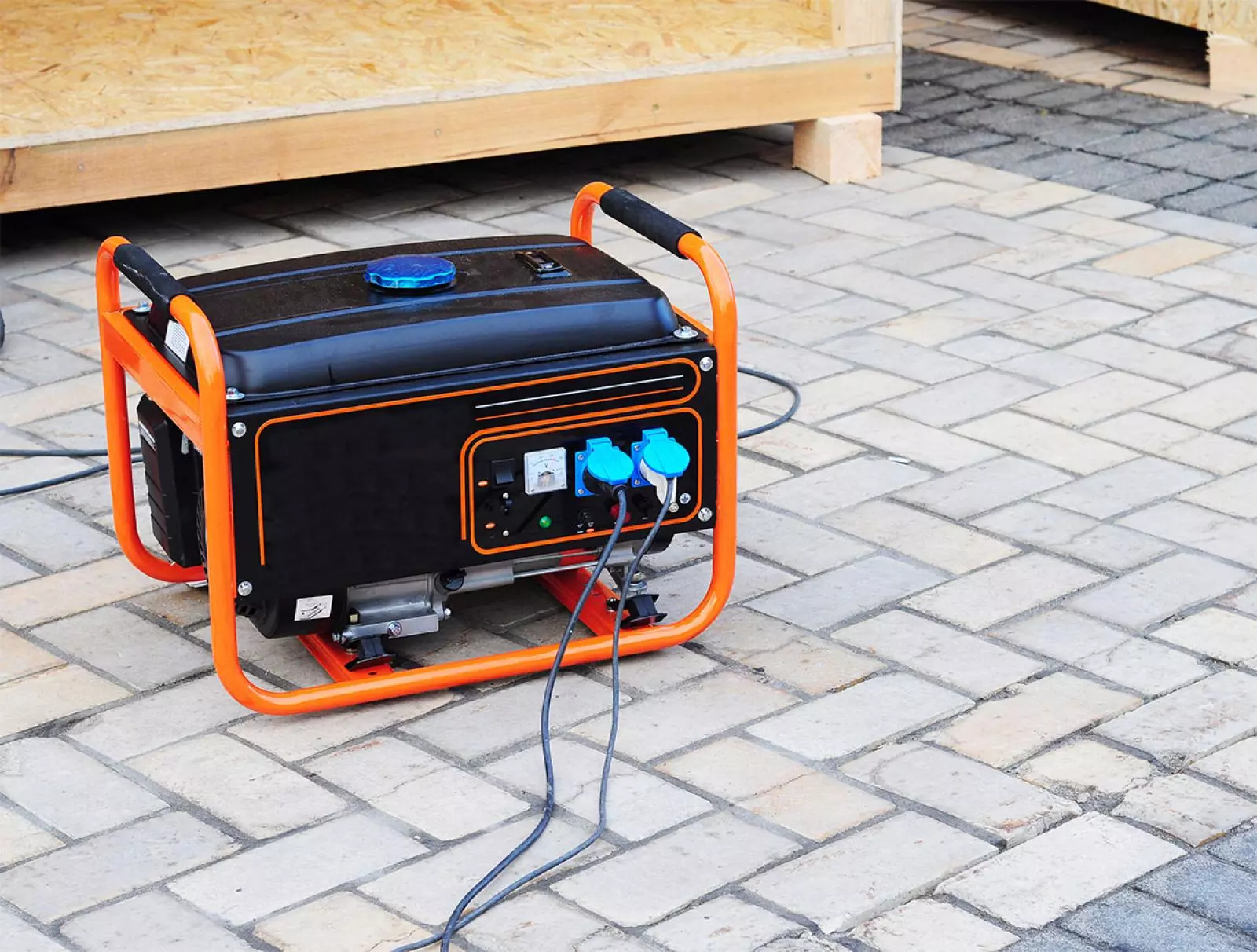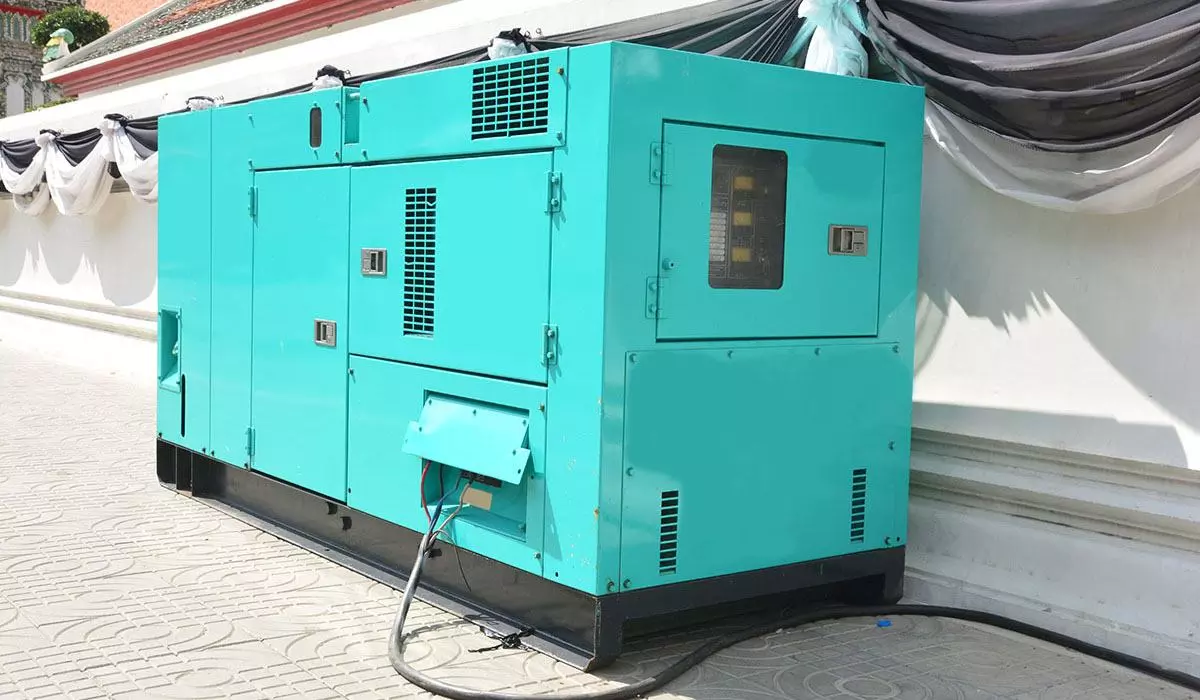Are you considering what size generator you need for emergency power? Find out more about emergency power systems vs standby power systems available.
When Would I Need Emergency Power?
Emergency power is a vital part of any commercial enterprise or domestic setting. Total power outages are something every home or business should be prepared for. From interruptions in your energy grid connection to environmental factors like flooding, there are many reasons a property might lose its power supply.
A backup generator gives you a reliable emergency power source, allowing for uninterrupted energy should the worst happen. Many generators also come with automatic initiation systems. This allows your generator to take over when your mains electricity supply fails.
There are certain scenarios where this is more important than others. For example, hospitals with patients on life support systems that require constant power cannot afford an interruption in their electricity for their essential equipment. Therefore, with a backup generator in place, you can protect those in need when an emergency power outage occurs.
In other settings, such as businesses, emergency power supplies allow your operations to continue when your mains electricity fails. For vital businesses, this is a protective measure worth investing in. Domestic homeowners can also benefit from backup generators, as the emergency power can keep everything running if your power supply is interrupted.
Emergency Power Systems vs Standby Power Systems
Under UK fire safety regulations, commercial and industrial premises must have emergency and standby power supplies as a necessary precaution. In the event of a fire, your electricity supply can be inhibited, meaning emergency power systems or standby power systems are essential for the safety of staff and employees.
But what are the differences between emergency power systems and standby power systems?
Emergency Power Systems

When your property experiences a loss of normal power, an emergency power system automatically provides backup power to all connected electronics.
As per the safety regulations, your emergency power should initiate within 10 seconds of the power outage. You should also ensure that any powered exits, evacuation lighting circuits, fire alarms and egress signs are connected to your emergency power supply.
Essentially, anything you use to protect employees, residents or occupants of your property must be connected to your emergency power system. Your emergency system should also be completely separate from your electric grid power supply. This means your emergency system must have its own transfer stations, panels, conduit runs, and other necessary components.
Standby Power Systems
There are two main types of standby power systems. One is legally required, while the other is optional.
Optional standby power systems
Contrary to the legally required systems, optional standby power systems are, as you can imagine, optional.
Given their status as optional, these power systems are typically used to provide electricity to non-essential appliances or electrical equipment if power is lost.
Usually, these systems are implemented to prevent data loss or to ensure the climate within a building is maintained during an outage.
Still, they are not required to start when normal power is lost automatically.
Legally required standby power systems
As the name suggests, these standby power systems are required by law but are held to different standards than emergency power systems.
For example, a standby power system can automatically initiate within 60 seconds rather than 10 seconds for emergency systems. They also do not need to be separate from your mains power supply.
Depending on what you are powering, such as life support or safety equipment, there are different regulations stating what must be connected to your standby system.
Backup Power Systems
While having all your electronics connected to your power supply is a good idea from a productivity standpoint, it's not always a financially viable solution. Having only the most vital electrical appliances, equipment and electrical tools run by your mains supply is the most cost-effective way to power your business or home.
However, when it comes to your and your employee's safety, you shouldn't compromise on the continued power supply. This is where backup power systems come in handy. If there's an interruption in your normal power supply, a backup energy system is essential to keeping your most important pieces of electric equipment running.
Again, this is most applicable to healthcare premises, such as hospitals, or businesses at a greater risk of fire, such as restaurants. Whether you have emergency lighting, egress pathways or stairs, sprinkler pumps or fire alarm systems, ensuring they all continue to work in an emergency should be your top priority.
Backup Generators

Backup generators are one of the easiest ways to guarantee constant power for emergency systems. Generators are essentially engines that use fuel, such as diesel or natural gas, to power your electrical devices.
While turbine generators are available, most businesses and homeowners opt for reciprocating generators, given their quicker initial start-up time and fuel energy efficiency.
Commercial generators are far larger than residential ones, requiring more fuel but can power many more household appliances and electric tools.
Whether using a residential or commercial generator, regular testing and maintenance are the best ways to ensure continued access to a power supply. You'll also need sufficient dry storage on site for all the fuel needed to power your generators.
Uninterruptible Power Supply (UPS)
If 10 seconds is too long for your premises to be without power, you may want to choose an uninterruptible power supply (UPS) instead. These systems ensure immediate power is restored while your backup generators start working. UPS systems can be vital for those requiring constant power as an intermediary between your normal power failing and your backup power starting.
There are two main types of UPS systems: battery and flywheel.
Battery UPS
These uninterruptible power supplies are giant rechargeable batteries that provide emergency power during an outage. Regular maintenance is vitally important to keep them working. Given that these batteries only have a limited charge, ensuring they are fully charged will give you the best chance of maintaining power when your mains electricity fails.
Flywheel UPS
Also called rotary UPS systems, flywheel UPS use an internal device to supply power and electricity through rotation. They are usually found in buildings with larger power requirements with a large number of appliances requiring constant electricity. While they still require regular maintenance, they are far more robust than battery UPS systems.
What Size Generator Is Needed To Power A House?
Each home has its own power requirements, with some needing more wattage or a higher voltage than others, but you won't be able to power an entire household and all your appliances with a backup house generator.
Some homes will have more appliances needed during a power outage than others, meaning there is no one-size-fits-all for emergency generators.
However, as a general rule, a single home standby generator that can provide 5,000W - 7,500W (Watts) or 5kW - 7kW (kilowatts) would be enough for a typical home.
If you face a power outage, a generator of this size could power your lighting, refrigerator, air conditioning, sump pump, power tools and a handful of other essentials, critical household equipment or portable appliances to keep you comfortable.
What To Consider When Buying A Generator
The main thing to consider when buying a generator is your property's level of power outage risk. For example, buildings in disaster-prone areas, such as those with regular high winds or flooding, are more likely to experience outages, meaning you will need a generator to act as a reliable backup energy source.
Finding a robust generator that can connect to your home's circuit breaker panel. Standby generators or one or two inverter generators fitted with a transfer switch are two of the best options for homeowners.
Naturally, spending thousands of pounds on a backup generator makes little sense if you don't live in an at-risk area. For those at a reduced risk, you'd be better off finding a mid-sized, portable generator, recreational generator or small camping generator to act as your backup. Figuring out how much total wattage each appliance you want to keep running during an outage will lead you to the most appropriate generator.
What Size Generator Do I Need?

Aside from conventional heavy-duty generators, you won't be able to power all the appliances in your whole house with a backup generator.
So, it would be best if you only calculated how many watts and how much power you think you'll need in an emergency using your average energy consumption listed on your energy bills to find the right generator size for your power needs.
You also want to bear your power-sensitive electronics and surge needs for different appliances to start, such as your fridge, water heater, coffee maker, flatscreen TVs, washing machine or window air conditioners. This is because starting wattages are typically higher than the total running wattages.
To find out what the different wattages of your appliances are, check the manuals that electric appliances sold come with or the power rating stickers attached to them.
You can then run these through a generator wattage calculator to find a generator that provides the right total power output. If you want to run multiple home appliances simultaneously, you'll naturally want a larger generator with enough energy and maximum threshold compared to a smaller generator.
Do you need an emergency power generator?
If you are looking for an emergency power generator , call us today on 01172 541069 for help choosing the right generator for you.
Now you know the requirements for common appliances you might be using at your events, get in contact to find the right generator for you.
Alternatively, see our range of generators here;





